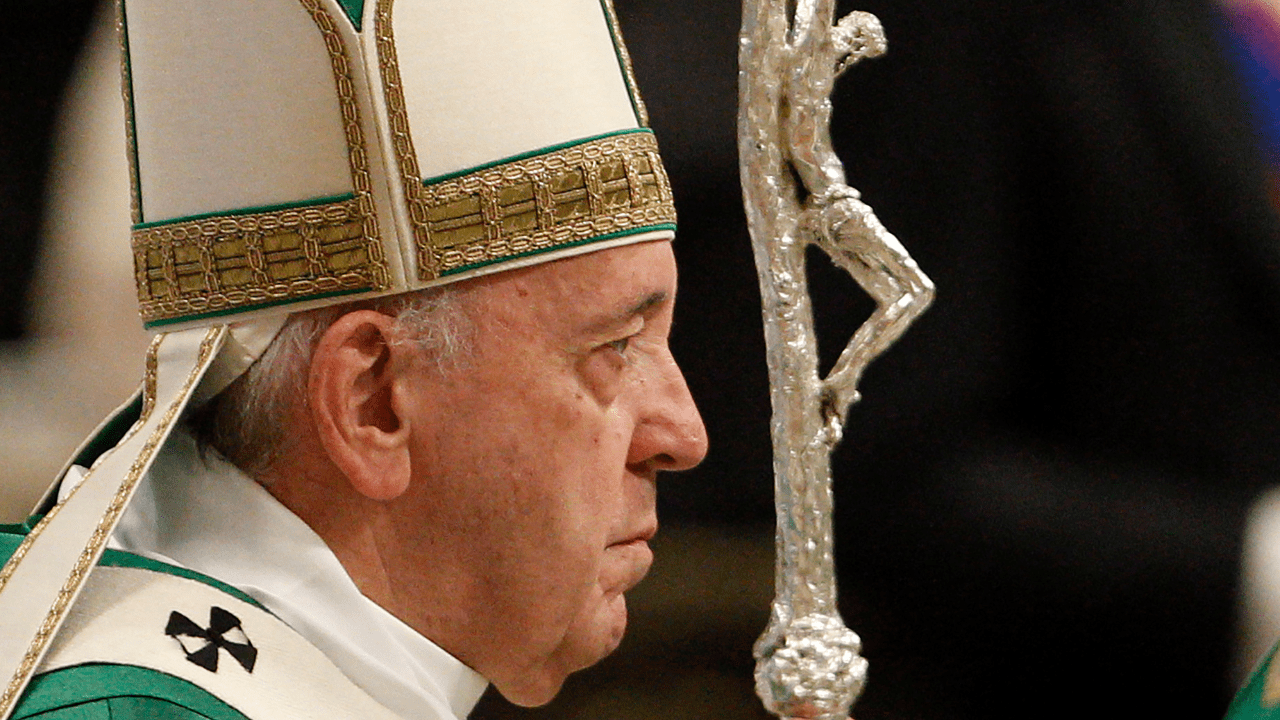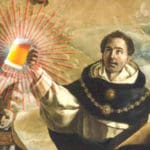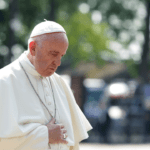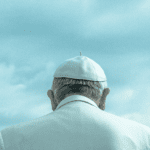Become part of the Pints With Aquinas community by supporting the show on Locals. Depending on the amount of your monthly gift, you’ll get access to some pretty awesome perks, from the “Morning Coffee” podcast to monthly spiritual direction videos from Fr. Gregory Pine!
What Do Catholics Owe Pope Francis?

Pope Francis has put faithful Catholics in a tough spot. He’s the true successor of Peter and we owe him obedience as such. But he also says and does things that have us scratching our heads, such as cracking down on the Latin Mass and chastising conservative Catholics while seemingly giving liberals a free pass.
This is a good time to remind ourselves what we owe — and don’t owe — the pope.
The pope is not the Oracle of Delphi. He’s not a demi-god who can usurp truth and reason or overturn divine and natural law.
But he is the vicar of Christ and the successor of Peter. He’s given the threefold power of teaching the truth, administering the sacraments, and governing the Church in the name of Christ.
The meaning of infallibility
Infallibility is a negative charism. It guarantees that the pope doesn’t teach heresy. It does not mean that he defines teachings in the best way or at the best time. It also doesn’t protect him from error when he speaks as a private individual. In fact, most statements from popes do not meet the criteria for infallibility (though they may still be authoritative).
Infallibility covers faith and morals. It does not cover science or other branches of secular knowledge. For example, the pope can authoritatively speak on our moral obligations IF global warming is real. But he can’t infallibly state that global warming is happening.
When Catholics should speak up
The Code of Canon Law stipulates that Catholics have not only a right but also a duty to manifest their opinions to Church leaders when these leaders stray from their sacred office.
However, before doing so, make sure you are informed about the matter you are speaking about.
Remember, Christ is still guiding His Church, even if her shepherds do things that leave us baffled. Also, thank God for the good lessons Pope Francis has taught us. Let’s take them to heart as we pray for the Holy Spirit’s guidance of the Holy Father.
POPULAR POSTS

BROWSE OFFICIAL MERCH
FROM PINTS WITH AQUINAS
 Find this mug, apparel, books and more on the official Pints with Aquinas online store.
Find this mug, apparel, books and more on the official Pints with Aquinas online store.





